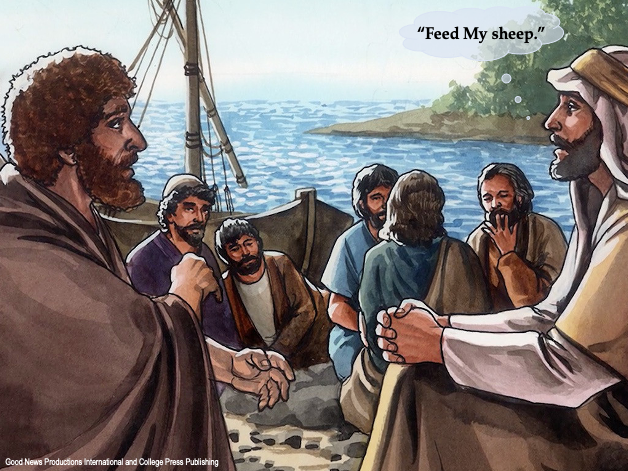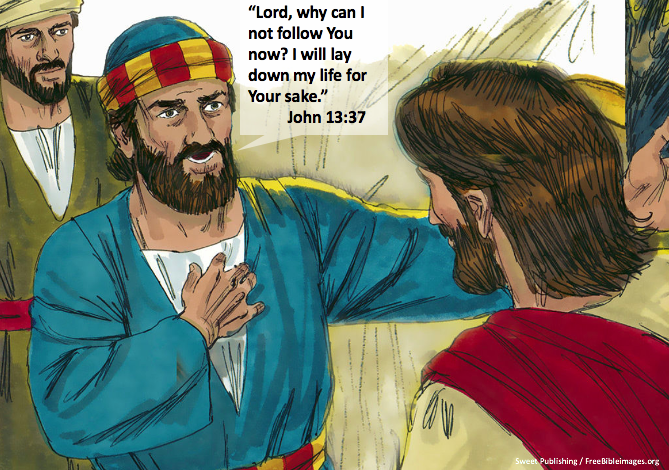“But hold fast what you have till I come.” Revelation 2:25
The ascended Lord Jesus addresses the fourth church next. “And to the angel of the church in Thyatira write, ‘These things says the Son of God, who has eyes like a flame of fire, and His feet like fine brass.’” (Revelation 2:18). “Thyatira was the smallest and least significant of the seven cities, but it was the one that received the longest letter.” 1
“According to legend, Thyatira was first established as a shrine to the sun god Tyrimnus and named Pelopia.” 2
This town stood about forty-five miles to the southeast of Pergamum. It was famous for its textiles, but especially for its production of purple dye (cf. Acts 16:14) and its trade guilds (or social clubs). 3
Sadly, these guilds were also steeped in blasphemous worship and sexual sin. The church in Thyatira had a woman, Jezebel, who supported such guild practices. If a Christian refused to participate in idol worship, he or she would often be excluded from the guild, and therefore be unable to conduct their business. 4
The Lord Jesus describes Himself as “the Son of God, who has eyes like a flame of fire, and His feet like fine brass.” This description of Christ is like that in 1:13-15, but here He is called the “Son of God” rather than “the Son of Man,” since this situation required a reaffirmation of His deity and the authority or right to judge this church. 5
“Eyes like a flame of fire” refers to Jesus’ blazing anger against sin and His ability to see beneath the surface into the inmost being of a person’s heart. 6 The Greek word used to describe Christ’s feet like “fine brass” is a rare word chalkolibanō, also used in 1:15. It seems to have been an alloy of several metals characterized by brilliance when polished. 7 This speaks of the risen Christ’s inflexible, immovable strength and power 8 and His readiness to execute judgment (cf. Revelation 19:15). 9
Although much was wrong with the church in Thyatira, Christ commends this church when He says, “I know your works, love, service, faith, and your patience; and as for your works, the last are more than the first.” (Revelation 2:19). These believerswere strong in good “works,” “love” for others (not mentioned in the other letters), “faith” in God, “service” of their Savior, and “patience” or perseverance in trials. This church was doing more as time went on (“the last are more than the first”)in contrast to the church at Ephesus which did less. 10 Often churches stop growing over time, but not the church in Thyatira. Their “works, love, service, faith, and…patience” continued to increase more that what they had at “first.”
But despite this evidence of Christian growth, the church in Thyatira had some serious flaws and needed a Judge. “Nevertheless, I have a few things against you, because you allow that woman Jezebel, who calls herself a prophetess, to teach and seduce My servants to commit sexual immorality and eat things sacrificed to idols.” (Revelation 2:20). Whereas the church in Ephesus would not allow false teachers, this church did. The risen Lord Jesus rebukes them for permitting a false teacher named “Jezebel” to entice them to practice “sexual immorality” connected to idolatrous worship (“to… eat things sacrificed to idols”).
“It is likely that Jezebel’s immorality involved teaching God’s people that it was acceptable to engage in the activities of the guild feasts that took place in pagan temples. The pressure on the workers of that day to give in was great because failure to attend these feasts could threaten their livelihood.” 11
“Though perhaps this was her real name, Jezebel also brings to mind the wife of Israel’s King Ahab (see 1 Kgs 16:31; 2 Kgs 9) and represents an entire category of immoral and idolatrous women.” 12
A modern-day practice of Jezebel’s doctrine is connected to pornography which involves sexual immorality and idolatry. Pornography is one of the most destructive practices in the church today and most churches do not know how to address it in a way that offers hope and healing for those enslaved to it. The majority of churches preach against the problem of pornography without providing a safe environment to address the real problem which is a deeper hurt in the hearts of those hooked on porn. Pornography is simply a surface coping mechanism for a deeper wound. Statistics indicate that 60-70 percent of men, 50-58 percent of pastors, and 20-30 percent of women in evangelical churches are sexually addicted. 13
“Pornography is the number one addiction for men. One out of two internet hits have to do with sex and pornography. Pornography can ruin normal sexual relationships because no real person can live up to pornographic images and fantasies. Research has shown that the limbic system bonds with whatever you are visualizing at the time of orgasm, so the next time you have sexual cravings they will be focused on that image or fantasy. This is why pornography is so addicting. Pornography is not really about sex; it is about zoning out, getting high on your own neurochemicals. Sex addicts report having withdrawal symptoms similar to cocaine withdrawal.” 14
Pornography is not just an adult addiction. Young people are also struggling with watching pornography online as young as four years of age and older because it is so accessible, addictive, aggressive, anonymous, and appealing. If you don’t think it’s possible for your children to get hooked on porn, you need to listen to Christian apologist and author Josh McDowell’s videos. 15 If you are struggling with pornography, contact Pure Desire at www.puredesire.org to obtain hope and healing from your addiction.
What is an idol? An idol is turning to something or someone other than God when we are anxious, hurting, lonely, stressed, or even wanting to celebrate. More and more Christians are turning to pornography instead of the Lord to medicate or celebrate their feelings. Pornography is an idol that is destroying the sons and daughters of God around the world.
Christ’s patience toward this false teacher in Thyatira is seen when He says, “And I gave her time to repent of her sexual immorality, and she did not repent.” (Revelation 2:21). God is very gracious and patient. He gave Jezebel “time to repent” of her false teaching that promoted “sexual immorality.” But she refused to “repent.” Understand that “a refusal is different than a struggle. At times, believers fight sins but cannot stop committing them on their own power. Jezebel was unwilling to make any effort.” 16 She knew she was doing wrong, and she chose to keep doing it. This does not mean that Jezebel was unsaved. It is possible to be a Christian and drift from sound doctrine (cf. I Timothy 1:19-20). 17
Since Jezebel did “not repent,” the Lord Jesus promised to discipline her and her followers when He said, “Indeed I will cast her into a sickbed, and those who commit adultery with her into great tribulation, unless they repent of their deeds.” (Revelation 2:22). Since she encouraged lying on beds of adultery, the risen Jesus would cast her on a different kind of bed: a bed of sickness. 18 And because her followers joined her immoral ways, they would experience God’s painful discipline in the form of “great tribulation” or distress.
Another group in this church would experience a more severe judgment. “I will kill her children with death, and all the churches shall know that I am He who searches the minds and hearts. And I will give to each one of you according to your works.” (Revelation 2:23). This group is referred to as “her children” because they fully embraced her teaching and lifestyle. 19 They would experience physical “death.” This may sound extremely severe, but it is not the first time in the New Testament that God disciplines His people in this way (cf. Acts 5:1-11; I Corinthians 11:29-30).
“Immediately before pronouncing, ‘It is a fearful thing to fall into the hands of the living God’ (Heb 10:31), the writer of Hebrews declares, ‘The Lord will judge His people’ (v 30, emphasis added). The Lord’s discipline would cause His people to know that He is serious about sinful activity and false teaching and that no one is exempt from His discipline (cf. Gal 6:7).” 20
This judgment would be so intense that “all the churches shall know” that the ascended Christ is the One “who searches hearts and minds.” Nothing escapes His notice. False teachers may be able to deceive their followers, but they are not capable of fooling the risen Lord Jesus. These seven churches (and any of us today) reading these messages would be reminded to take sin seriously because God is partial to no one. He says, “I will give to each one of you according to your works.”
Not all the believers of the church in Thyatira followed Jezebel and her false doctrine. Jesus says to them, “Now to you I say, and to the rest in Thyatira, as many as do not have this doctrine, who have not known the depths of Satan, as they say, I will put on you no other burden.” (Revelation 2:24). Apparently Jezebel claimed that her “doctrine” (that Christians can indulge in immorality without consequences) was deeper than the teachings of the apostles’ when in reality they extended to “the depths of Satan.” 21 Christ says that those who did not follow Jezebel’s teaching would be subject to “no other burden” just listed.
Instead, this godly remnant was to “hold fast what you have till I come.” (Revelation 2:25). These faithful believers were simply to continue to do what they had been doing – to stand against false teaching and to “hold fast” to purity of doctrineuntil Christ comes for His church at the Rapture (cf. Revelation 4:1-4; cf. John 14:2-3; I Thessalonians 4:13-5:11). 22
Walvoord observes, “Perhaps because the church was small, Christ did not command them to leave it but to remain as a godly testimony. Judgment on Jezebel and her followers would come soon and would purge the church. In modern times Christians who find themselves in apostate local churches can usually leave and join another fellowship, but this was impractical under the circumstances in Thyatira.
“The parallels between Thyatira and other apostate churches throughout church history are clear. Some compare Thyatira to believers in the Middle Ages when Protestantism separated from Roman Catholicism and attempted a return to purity in doctrine and life. The prominence of Jezebel as a woman prophetess is sometimes compared to the unscriptural exaltation of Mary. The participation in idolatrous feasts can illustrate the false teaching that the Lord’s Supper is another sacrifice of Christ. In spite of the apostasy of churches in the Middle Ages, there were churches then which, like the church of Thyatira, had some believers who were bright lights of faithfulness in doctrine and life.” 23
The ascended Lord Jesus then gives this godly remnant a challenge and promised reward if they fulfill that challenge. “26 And he who overcomes, and keeps My works until the end, to him I will give power over the nations – 27 ‘He shall rule them with a rod of iron; they shall be dashed to pieces like the potter’s vessels’ – as I also have received from My Father; 28 and I will give him the morning star.” (Revelation 2:26-28). The eternal rewards for remaining faithful to Christ and resisting Jezebel’s false teachings “until the end” of their lives was ruling with Christ “over the nations” in His earthly kingdom and enjoying a special intimacy with the Morning Star Himself, Jesus Christ (cf. 2 Peter 1:19; Revelation 22:16). 24 The morning star (usually the planet Venus) appears in the night sky, just before the dawning of a new day. Jesus Christ will guide faithful believers in the future, as the new day of His rule dawns (cf. Titus 2:13; Daniel 12:3). 25
“Thus, the reward for a pure life is a greater experience of Jesus during His millennial reign and for eternity. Naturally, a co-ruler of the universe will have greater access to the King than a common citizen.” 26
The Lord intended the prospect of this promised blessing to motivate the unfaithful in the church to return to God’s will for them, and to encourage the faithful to persevere. Believers who are faithful (“he who overcomes”) will receive “power” (authority) in heaven from Jesus Christ and will “rule” (lit. “shepherd”) others during the thousand-year reign of Christ on earth (cf. Matthew 16:24-27; 19:28-29; Luke 19:11- 27; Romans 8:17b; 1 Corinthians 6:2-3; 2 Timothy 2:12; Revelation 3:21; 20:4-6). Some believers will receive greater authority for being faithful, than others who have not been as faithful (cf. 2 Corinthians 5:10; Revelation 22:12). While not all Christians will remain faithful to the Lord (2 Timothy 2:12), Christ evidently described believers as faithful (cf. Revelation 2:19) to motivate them to remain faithful. 27
We see that the rewards of ruling with Christ and enjoying a special intimacy with Him in His earthly kingdom are reserved only for individual believers in Jesus who remain faithful to Christ until the end of their lives on earth. The Lord Jesus says, “He who has an ear, let him hear what the Spirit says to the churches.” (Revelation 2:29). Not all Christians are “overcomers” who hold fast to Christ till the end of their lives on earth. Only those who “hear what the Spirit says to the churches” and appropriate Jesus’ promise will be able to live as “overcomers” and receive these perseverance rewards.
Since Christ will reward each Christian “according to his works” (2:23; cf. 22:12) and not all Christians do the same amount or quality of works, there will be varying degrees of rewards among believers. When Jesus evaluates our Christian lives at the Judgment Seat (Romans 14:10-12; I Corinthians 3:8-15; 2 Corinthians 5:10; Revelation 22:12), He will look deeper than the works themselves, since He “searches the hearts and minds” of His people and knows what motivates them to act (Revelation 2:23; cf. I Corinthians 4:5). His rewards will also take into consideration the motivation for our works (cf. Matthew 6:1-4; Hebrews 4:12-13). Have we served Christ with our very best to bring honor to Him (cf. I Corinthians 10:31; Colossians 3:22-25)? 28 Only Jesus Christ is qualified to make such judgments of believers (cf. I Corinthians 4:1-5; Revelation 1:12-20; 2:23; et al.).
To summarize: Christians who succumb to false teaching and the sinful lifestyle it promotes, can expect God’s discipline in their lives even unto physical death (2:18-23; cf. Acts 5:1-11; I Corinthians 11:29-30). Believers who resist false teaching and remain faithful to Christ until the end of their lives will receive the reward of ruling with Christ in His coming Kingdom and enjoy a special intimacy with Him, our Morning Star (2:24-29).
Prayer: Precious Lord Jesus, thank You for loving us enough to tell us what we need to hear. Like the church in Thyatira, You have commended us for having more good works, love for others, faith in God, service for You, and perseverance in trials than we had at the first. But You know our hearts and minds better than we do. You know that we have tolerated false teaching within our churches that compromises the truth of Your gospel by adding works to Your finished work on the cross. Such an unstable foundation has led to an infiltration of sexual immorality and idolatry in Your churches. Those of us who fall prey to this teaching of Jezebel’s spirit are those who often seek spiritual enlightenment apart from You and crave eternal life without believing on Christ’s sacrificial death. We can consider ourselves superior to the rest of the earth’s population and are ever learning some new ‘mystical’ spirituality, which is contrary to the truth of the gospel. Please help those of us who have embraced Jezebel’s teaching to return to Your will lest we experience Your painful discipline. Empower those of us who have rejected her teaching to remain faithful to You until the end of our lives so we may receive Your eternal rewards of ruling with You in Your coming Kingdom on earth and enjoying a special intimacy with You then as our Morning Star. May we hear and practice what Your Spirit says to us. In Your glorious name we pray, Lord Jesus. Amen.
ENDNOTES:
1. Tom Constable, Notes on Revelation, 2017 Edition, pg. 41.
2. Ibid., cites David E. Aune, Revelation 1—5 (Word Biblical Commentary series. Dallas: Word Books, 1997), pg. 201.
3. Constable, pg. 41.
4. Bob Vacendak; Robert Wilkin; J. Bond; Gary Derickson; Brad Doskocil; Zane Hodges; Dwight Hunt; Shawn Leach. The Grace New Testament Commentary: Revised Edition (Grace Evangelical Society, Kindle Edition, 2019), pg. 1508.
5. John F. Walvoord, The Bible Knowledge Commentary Epistles and Prophecy, Editors John F. Walvoord and Roy B. Zuck, (David C Cook, 2018 Kindle Edition), pg. 164.
6. Constable, pg. 42 cites, William Barclay, The Revelation of John Vol. 1 (The Daily Study Bible series. 2nd ed. Edinburgh: Saint Andrew Press, 1964), pg. 128; Vacendak, pg. 1508.
7. Walvoord, pg. 164.
8. Constable, pg. 42 cites Barclay, pg. 128.
9. Vacendak, pg. 1508.
10. Walvoord, pg. 164.
11. Vacendak, pg. 1508.
12. Tony Evans, CSB Bibles by Holman. The Tony Evans Bible Commentary (B & H Publishing Group, Kindle Edition, 2019), pg. 2374.
13. Jeremy & Tiana Wiles, Conquer Series: The Battle Plan For Purity Study Guide, Vol. 1 (Stuart FL: KingdomWorks Studio, 2017), pg. 21.
14. Michael Dye, The Genesis Process: For Change Groups Book 1 and 2 Individual Workbook (Michael Dye/Double Eagle Industries, 2012), pp. 206-207.
15. See Christian apologist and author Josh McDowell’s very informative and staggering videos on October 7, 2018 at Denton Bible Church entitled, “Breaking Free from the Porn Epidemic w/ Josh McDowell” at https://vimeo.com/294241982 and on August 3, 2021 with Pure Desire Ministries entitled, “The Effects of Pornography with Josh McDowell” at https://www.youtube.com/watch?v=y3sRmLFarZc .
16. Evans, pg. 2374.
17. Vacendak, pg. 1509.
18. Constable, pg. 43.
19. Vacendak, pg. 1509.
20. Ibid.
21. Constable, pg. 43.
22. Ibid., pg. 44; Vacendak, pg. 1509.
23. Walvoord, pg. 164.
24. Vacendak, pg. 1509.
25. Constable, pg. 45.
26. Evans, pg. 2374.
27. Constable, pg. 44.
28. Joseph Dillow, Final Destiny: The Future Reign of The Servant Kings: Fourth Revised Edition (Grace Theology Press, 2018 Kindle Edition), pp. 771-772.









